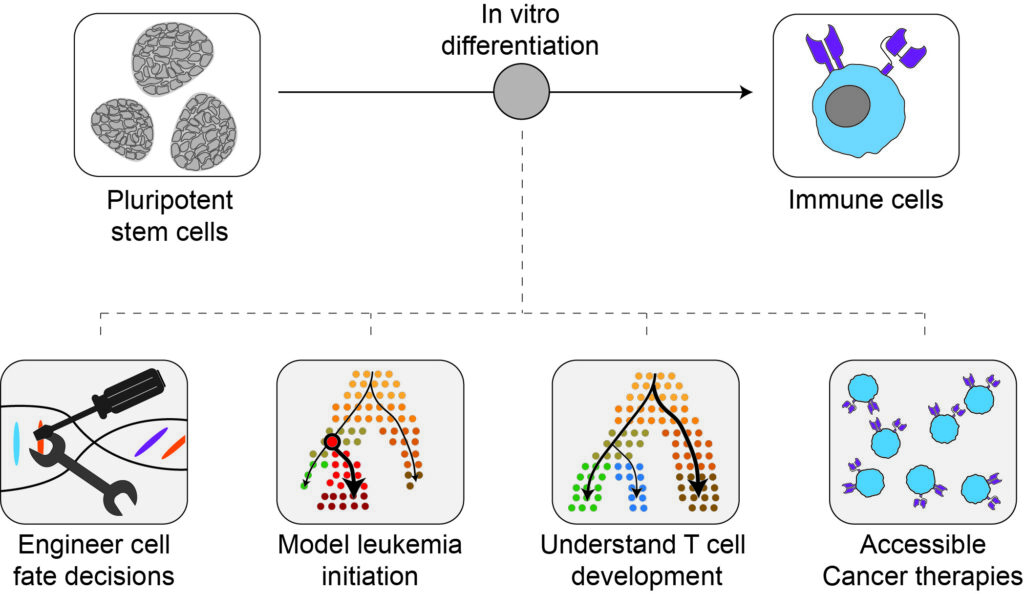What we do
Our research
We use stem cells as a renewable resource to understand how immune cells develop and function. High dimensional single cell profiling, lineage tracing and perturbation screens allow us to understand the signalling networks and gene expression programs that control immune cell identity. We are using this knowledge to engineer better immune cell therapies and to understand how mutations corrupt cell identity to initiate leukaemia.
We are particularly interested in understanding how changes in the level and timing of gene expression impact immune cell differentiation and function. To answer this question, we are developing advanced synthetic biology tools for precisely engineering gene expression dynamics in human stem cells and immune cells. Our team has pioneered a technology called miSFITs that allows researchers to tune gene expression to within 1% of their desired level.

We are also interested in improving the efficiency of immune cell differentiation from pluripotent stem cells. T cell therapy is a life-saving approach to treating some types of leukaemia but obtaining and genetically modifying T cells from individual donors is very expensive. A single course of T cell therapy currently costs ~$500,000. Pluripotent stem cells can be grown indefinitely in the lab making them a renewable and cost-effective source of T cells for treating cancer. We recently developed a clinically translatable process for efficiently differentiating pluripotent stem cells into T cells. We are actively working to bring stem cell-derived T cells to the clinic.